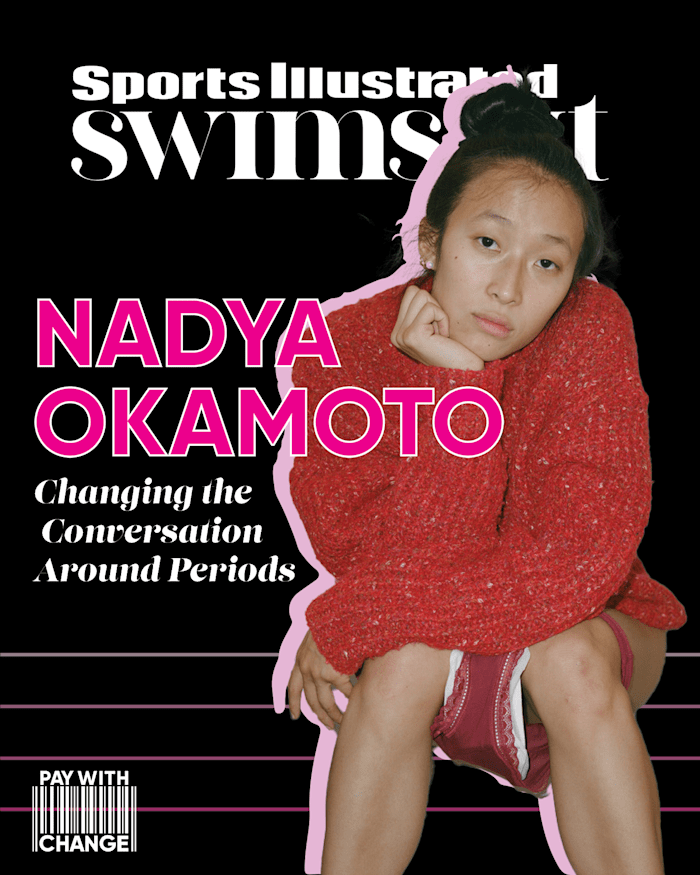Nadya Okamoto Is Changing the Conversation Around Periods

In a time where many aspects of healthcare undergo frequent evolutions to make modern medicine more accessible and accommodating, one field lags behind: women's reproductive health. Often they are overlooked or stigmatized. One such topic is menstruation, something often shrouded in fear and shame. But recent Harvard graduate Nadya Okamoto is on a mission to reimagine periods to be powerful.
She is the co-founder of August, a lifestyle period brand, and the author of the book "PERIOD POWER: a Manifesto for the Menstrual Movement." Plus, she was the former executive director of PERIOD, a nonprofit organization that works to eliminate period poverty. Outside of her work in the menstrual health space, Okamoto was also the chief brand officer and board member of JUV Consulting, a Generation Z marketing agency based in New York City.
Oh, and did we mention she's just 24 years old? Yes, the entrepreneur was recognized on the lists of Forbes 30 under 30, Bloomberg 50 "Ones to Watch" and People's Women Changing the World. Now we're getting the chance to talk to her about what changes she'd like to see when it comes to periods.
What sparked your interest in periods?
"I learned about period poverty when I was 16 directly from homeless women that I met on my journey to and from school. It was a wake-up call of like, wow, regardless of what my family has gone through from an instability standpoint, I never had to worry about using trash to take care of my periods. I heard stories of using toilet paper and socks and brown paper grocery bags and cardboard to take care of periods. So that's what initially interested me."
What have been the most surprising things you've learned about periods in your career?
"I've been in the period space for about eight years working on service, education and advocacy around period poverty. I realized the product could be a lot better, more affordable, more sustainable, ethically made, inclusive, and we should be unafraid to talk about periods. I was also chief brand officer at a Gen Z marketing agency and was working with many femcare brands as clients. I noticed these companies were resistant to change. In 2014, 40 states had a sales tax on period products, considering them non-essential goods. That tampon tax still exists in 30 states. Plus, food stamps don't cover period products. I could go on and on because this is such a serious issue."
What are some common questions you get from women?
"I get thousands of questions a day on social media. And one of the most frequently asked questions that I get is, 'Can I go swimming on my period?’ It's so sad that all these young menstruators out there are scared to go and run or swim on their period, or they're scared to use a tampon because they've heard that it takes away their virginity. Every day, it astounds me the number of grown women who did not know that they had three holes down there. It's all stigma related."
What is your primary goal with your brand August?
"I would love to reimagine period care and period care as an industry. I believe so much in our products being better. Like most pads take 500 to 800 years to decompose, our pads are fully biodegradable within 12 months. They're plastic-free. They're softer. They're more leakproof. They're more absorbent. Overall, they work better while being softer, more comfortable and more sustainable. I genuinely believe that this industry has not been pushed to innovate. It's an industry that has not been pushed to be more inclusive or more ethical or more transparent. And yet it's on track to be a $52 billion industry by 2023 globally. My goal with August is to take a stance against period stigma and poverty and push this entire industry to change."
And what can people start doing to make a difference?
"I think, like, normalizing the conversation in the first place. So many people have these, like, nightmare stories of their dads not getting them the period products because they don't want to buy them. Chances are people get their first period at home, and the first person they'll turn to is a parent. It's terrifying if you've never heard about periods or talked about it with a parent. And it's important to talk to non-menstruators as well, so boys don't tease girls. And when it comes to period poverty, donate period products when donating canned foods around the holidays. It creates an opportunity to have these conversations and raise awareness."
Anything else you'd like to see change?
"I would love to collaborate on a shoot where it's like beautiful, sexy, powerful photos in swimwear, but with a tampon string hanging out. I want women to know they can feel powerful and sexy on their periods."
Beginning on International Women’s Day (March 8), the Pay With Change initiative will be front and center on SI Swim channels through daily spotlights on the women, brands and properties making a concerted effort to fight for women’s equality.
